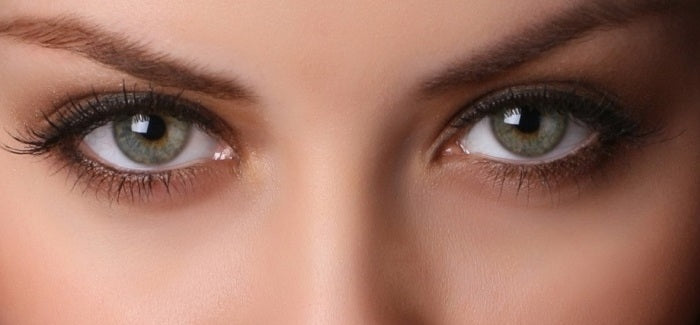Seven triggers for hyper-pigmentation
Do you have freckles that can’t really be categorised as freckles? By this we mean they’re not cute and you didn’t have them as a kid.
Hyper-pigmentation is a common skin condition that affects many of us, especially as the years tick by. But you don’t have to sit back and take it. Here we talk about the causes and the best strategies for avoidance.
Post-inflammatory hyperpigmentation caused by acne
Your old foe acne is the ‘gift’ that keeps giving. Over time you may have noticed that once a zit is done and the skin has healed, you can be left with the parting gift of a permanently pigmented spot. This is from something called ‘post-inflammatory hyper-pigmentation’. It can also be caused by eczema, psoriasis and damage from skin treatments, such as microdermabrasion, skin peels or laser therapies.
To avoid this type of hyperpigmentation, never pick and squeeze spots, treat your skin with respect and take a gentle approach to the problem of acne treatment. And if you decide to have a skin treatment session, pick a reputable professional who can suggest a suitable treatment for your skin type to avoid causing any damage.
Melasma caused by fluctuating hormones
Some women experience a skin pigmentation problem called melasma that’s the result of fluctuating hormones. Variations in oestrogen and progesterone levels can be brought on by many factors, such as pregnancy, illness and taking birth control pills. Your diet can also affect your hormones, particularly food with a high level of phytoestrogens, such as soy.
Some of these causes are temporary and the pigmentation will usually normalise over time. If you’re prone to melasma, have a chat with your GP to explore birth control alternatives you could try that won’t affect your hormone balance so much.
UV damage risk during your menstruation cycle
While we’re on the topic of hormones, did you know that your skin is more susceptible to UV damage while you are premenstrual? For up to one week before your period, due to the hormonal activity, your skin is at more risk of pigment development when exposed to the sun.
Even on cloudy days, take extra care to ensure you’re protected from the harmful UV rays, - wear sunscreen, sun-protective clothing and sit in the shade when you can.
Hyper-pigmentation from chemical sunscreens
Chemical sunscreens contain compounds such as oxybenzone, octinoxate, octisalate and avobenzone, which protect your skin from burning by absorbing UV rays from the sun and dispersing the heat. It’s believed that the heat dispersed from this can stimulate melanin production and cause hyper-pigmentation. These ingredients can also have oestrogenic properties that can create a hormonal imbalance, leading to abnormal melanin production.
As an alternative, when you’re having fun in the sun, use a mineral-based sunscreen with high zinc or titanium content.
Increased melanin production from parabens
Parabens lurk in quite a few skincare products and sunscreens. Used as a preservative for a long shelf life, parabens are believed to disrupt hormone function by mimicking oestrogen, which results in increased melanin production.
To avoid parabens, always look at the ingredients list on your skincare products. The nasties to watch for are methylparaben, ethylparaben, propylparaben, butylparaben and isobutylparaben. We recommend you choose natural, synthetic-free products to put on your skin.
Hyper-pigmentation caused by lack of sleep
Not getting enough sleep is fairly common in your average person’s everyday life. And it doesn’t just make you feel tired. One of the many detriments of lack of sleep is poor blood circulation, which affects the oxygen supply that supports healthy skin. This can lead to hyper-pigmentation or an uneven complexion.
Lack of sleep also leads to more stress hormones in your body and, you guessed it, these hormones can cause an increase in skin pigmentation.
Make an effort to get to bed a bit earlier and avoid digital screens for an hour before turning out the lights. By getting more sleep, you’ll give your body more time to produce melatonin, which is a hormone secreted by the pineal gland in the brain. Among other benefits, studies have shown that melatonin has antioxidant activity in UV exposed cells.
Excess pigmentation caused by heat
You might be surprised to read that high temperatures can also affect skin pigmentation. Being exposed to heat while cooking, blow-drying your hair, sitting in a sauna and being in front of a fire can make melasma worse, due to the dilation of blood vessels under the skin. Try to reduce exposure to the heat by putting a bit more distance between you and the heat source.



Leave a comment
This site is protected by hCaptcha and the hCaptcha Privacy Policy and Terms of Service apply.